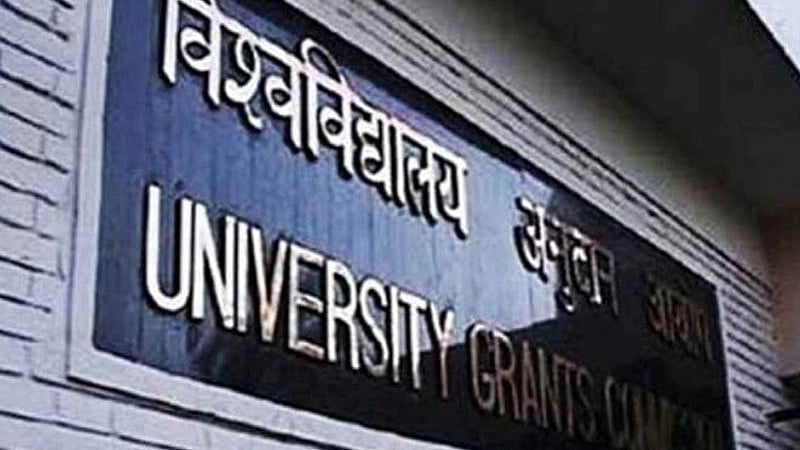
Representative image of the UGC board.
Credit: PTI Photo
The new draft regulations issued by the University Grants Commission (UGC), on appointment of vice-chancellors and faculty in universities and colleges, aim to drastically change the country’s higher education system and bring it under the control of the Central government. The provisions grant overriding powers to the chancellors in the appointment of vice-chancellors of state universities. The search committee will have no representative of the state government on it. The governor of a state, who is an appointee of the Central government, is the chancellor of the universities in that state, and so the vice-chancellors will in effect be appointees of the Central government. Under the draft regulations, there is no requirement of a PhD degree or a particular number of years of teaching experience for appointment as a vice-chancellor. Any person from business, administration or other fields can be appointed to that position. Existing norms for the appointment of faculty members and their promotions are also proposed to be changed.
The regulations, if implemented, will strip state governments of any role in the appointment of vice-chancellors. That would be a violation of federal principles and an attempt to control a very important sector. It would also run counter to the intent of the Constitution. With Entry 66 in the Union List, it has given the Union government the task of “co-ordination and determination of standards in institutions for higher education or research and scientific and technical institutions”. This cannot be interpreted as giving the Centre the power to override the powers of states. Setting standards, issuing norms, and coordination of activities should not be stretched to deny the states their legitimate role in education.
Universities are formed by acts of state legislatures. They are funded by state governments. The UGC has no mandate to control and regulate the functioning of the universities, even if education is in the Concurrent List of the Constitution. Appointment of vice-chancellors is a contentious issue in most states ruled by non-BJP parties. Some state governments have sought to take the power away from the governors because of the controversies and conflicts they have created as chancellors. The UGC is giving that power to the governors in an absolute fashion. State governments and teachers of universities have strongly opposed the regulations. The Central government is trying to control education in various ways, such as changing the syllabus. The UGC move, which is the Central government’s move, is intended to extend political and administrative control over the universities and the entire higher education sector. It will be strongly resisted by the states, universities and others.
